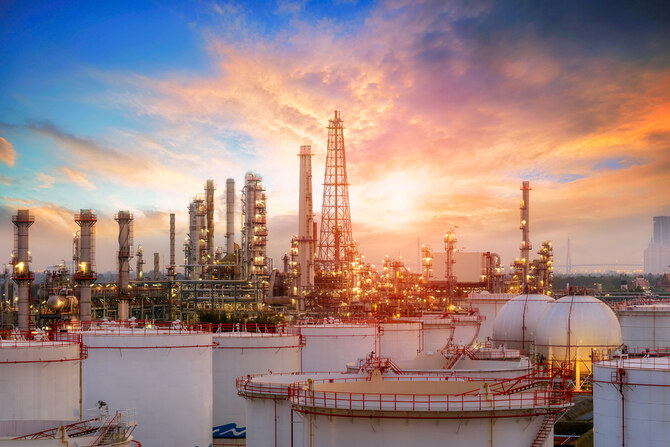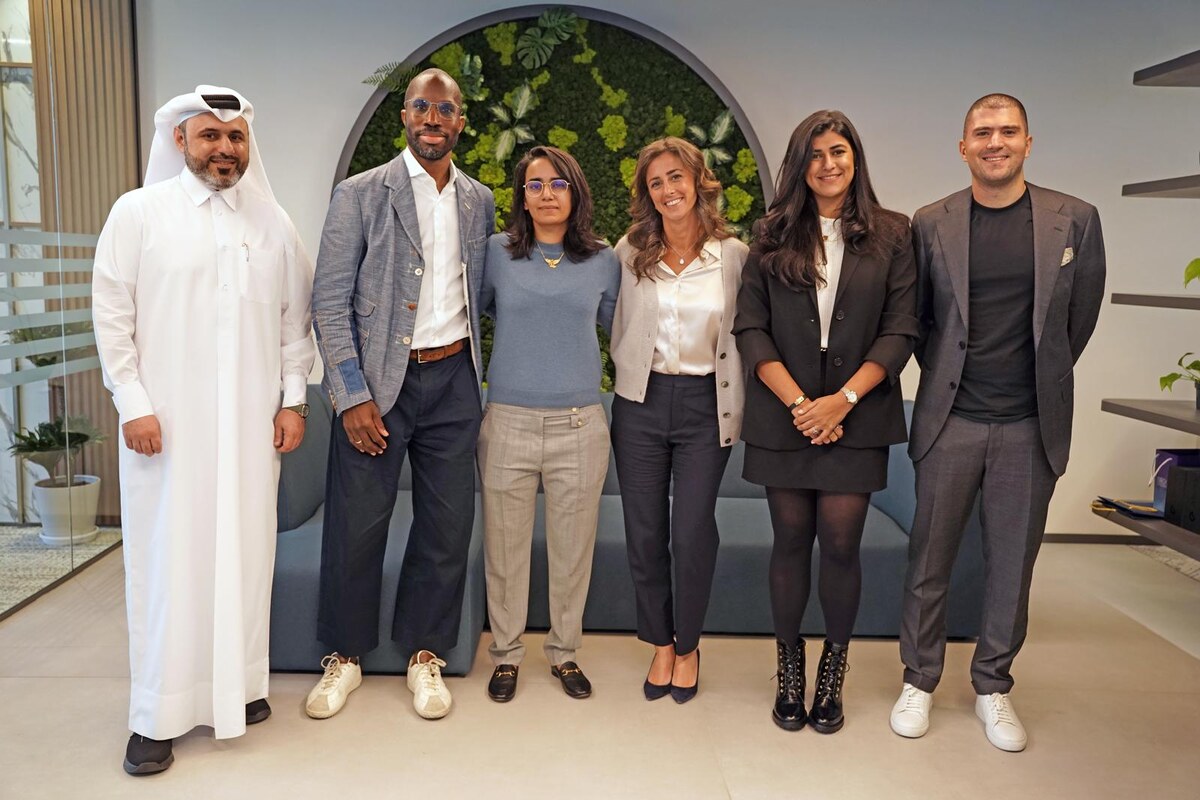RIYADH: Saudi Arabia’s rise as a global leader in the petrochemicals industry is a product of strategic foresight, substantial investments, and a commitment to economic diversification, experts have told Arab News.
As the Kingdom seeks to reduce its dependence on oil revenue, its petrochemicals sector has emerged as a cornerstone of its industrial strategy, playing a pivotal role in Vision 2030.
Strategic investments, advanced infrastructure, and cost advantages have rapidly positioned the nation as a global leader in chemicals and plastics production, significantly boosting the sector in just a few years.
Hector Casas, principal at Arthur D. Little Middle East, highlighted in an interview with Arab News that Saudi Arabia’s petrochemical capacity is expected to “double in the next five years, from approximately 75 million tonnes per year to more than 140 million tonnes per year.”

Hector Casas, principal, Arthur D. Little Middle East (Supplied)
The Kingdom’s access to competitive energy prices will drive this expansion and strengthen its position as a major player in the global petrochemical industry, making it exceptionally competitive in the sector.
“This growth encompasses projects in both basic petrochemical products and high-specialty products that add more value to the oil molecule,” he said.
Nadim Haddad, partner in the Energy Practice IMEA and global head of Oil and Gas at Oliver Wyman, added: “Saudi Arabia is acquiring assets globally in the petrochemical industry that will further cement its role as a pioneer and leader of the industry.”
The global petrochemical market is expected to grow significantly in the coming years, driven by rising demand for plastics, chemicals, and advanced materials in emerging markets.
“Saudi Arabia is strategically positioned to capitalize on these opportunities, reinforcing its status as a global petrochemical powerhouse,” added Casas.
As part of Vision 2030, Saudi Arabia aims to diversify its economy, with the petrochemicals industry playing a key role in reducing reliance on oil and driving industrial growth through technological advancement and strategic partnerships.
Foundations of the petrochemical industry
The foundations of Saudi Arabia’s petrochemical industry are deeply intertwined with the history of its oil and gas sector. Following the discovery of vast oil reserves in the 1930s, the Kingdom quickly recognized the potential of petrochemicals as a means to add value to its hydrocarbon resources.
The establishment of Saudi Basic Industries Corporation – also known as SABIC – in 1976 marked a turning point, as the Kingdom began to channel its abundant natural gas resources into the production of chemicals and plastics.

Nadim Haddad, partner in the energy practice IMEA and global head of Oil and Gas, Oliver Wyman (Supply).jpg
SABIC has grown into one of the world’s largest and most diversified chemical companies, with operations spanning over 50 countries. Its success is driven by a strategic focus on vertical integration within the hydrocarbon value chain, allowing the company to produce a wide range of petrochemical products at competitive costs.
This leadership not only reflects Saudi Arabia’s natural resource wealth but also its strategic investments in infrastructure, research, and human capital development.
Casas emphasized the significance of Saudi Arabia’s strategic investment in downstream petrochemical industries, particularly the acquisition of SABIC: “With the energy transition, the demand for oil as fuel will potentially start to decrease, while the demand for petrochemical-based products like plastics and synthetic fibers is increasing.”
He added: “Saudi Arabia is cognizant of this shift and understands that it possesses potentially more oil reserves than could be exploited, given expected trends in demand.”
Haddad highlighted the importance of the Kingdom’s integration with the oil and gas value chain which he said is built on the availability of feedstock to build an advantageous cost position on the global market.
“Jubail Industrial City, one of the largest industrial cities with state-of-the-art infrastructure, played a key role in building the foundation that helped accelerate the growth of the petrochemical industry,” Haddad explained.
Economic diversification and Vision 2030
The government’s focus on economic diversification is driving significant investments in the sector, including the development of new production facilities, the expansion of existing capacities, and the adoption of advanced technologies that enhance efficiency and sustainability.
Vision 2030 envisions Saudi Arabia as a global industrial hub, attracting foreign investment and fostering innovation in high-value industries. The petrochemicals industry, with its vast potential for value addition, is a key component of this vision.
The Kingdom’s strategic location at the crossroads of Europe, Asia, and Africa, combined with its state-of-the-art infrastructure, makes it an ideal destination for investors seeking to capitalize on the growing demand for petrochemicals in emerging markets.
Haddad underscored the importance of downstream investments in this strategy: “Downstream investments in chemicals are one of the key pillars of Saudi Arabia’s industrialization strategy, creating the link between the petrochemical industry and end uses.”
He went on to explain that these investments will allow Saudi Arabia to capture the economic value-add that it was previously unable to capture, localize value chains, reduce reliance on imports, and increase the diversification of its exports.
Expanding production capacity and technological innovation
Saudi Arabia’s petrochemical sector has seen remarkable growth in recent decades, with production capacity reaching approximately 118 million tonnes annually. This has been driven by continuous investments in infrastructure, technology, and capacity expansion.
The Kingdom’s focus on producing more advanced specialty products, such as performance polymers, engineering plastics, and high-value chemicals, reflects its commitment to moving up the value chain and capturing a larger share of the global market.
Technological innovation plays a crucial role in the competitiveness of Saudi Arabia’s petrochemical industry. The Kingdom is investing heavily in research and development to drive innovation across the value chain.
SABIC’s dedicated R&D centers, located in strategic regions around the world, are at the forefront of developing new materials and processes that enhance efficiency, reduce environmental impact, and create value-added products.
As Casas pointed out: “Saudi Arabia is very active in R&D and technology in the petrochemical sector. SABIC’s R&D program and Home of Innovation are a clear showcase of this.”
Moreover, Saudi Aramco, the world’s largest integrated energy and chemicals company, is making significant strides in integrating its upstream and downstream operations.
The acquisition of a 70 percent stake in SABIC for $69.1 billion has further strengthened Aramco’s downstream capabilities, positioning it as a global leader in the production of petrochemicals.
Casas noted the strategic impact of this acquisition: “The acquisition of SABIC by Aramco has not only positioned the latter as a major petrochemical player worldwide but also enabled significant optimization and synergies in procurement, supply chain, manufacturing, marketing, and sales.”
In terms of technological advancements, ADL’s expert highlighted four key fronts: “The development of mega-scale oil-to-chemical complexes, the focus on high-specialty chemicals, the digital transformation to drive efficiencies, and the emphasis on emissions reduction and sustainability.”
These advancements are crucial for Saudi Arabia to maintain its competitive edge in the global market.
Strategic partnerships and international collaborations
Saudi Arabia’s petrochemical industry has benefited significantly from strategic partnerships and international collaborations. Joint ventures with leading global companies have been instrumental in bringing advanced technologies, expertise, and capital to the Kingdom.
These partnerships have not only enhanced Saudi Arabia’s production capabilities but also facilitated the transfer of knowledge and technology, which is critical for the industry’s long-term growth.
One of the most notable examples of such collaboration is the Sadara Chemical Company, a joint venture between Saudi Aramco and Dow Chemical.
Established with an investment of $20 billion, Sadara is the largest integrated chemical complex in the world built in a single phase. The facility produces a wide range of value-added chemicals and plastics, many of which are being produced in Saudi Arabia for the first time.
Sadara’s success underscores the importance of international partnerships in driving innovation and expanding the Kingdom's petrochemical portfolio.
Haddad elaborated on the role of such partnerships: “Joint ventures and partnerships are not new to Saudi Arabia's petrochemical sector; there is a rich history of collaborations that have significantly accelerated the industry’s development.”
“These collaborations will facilitate the development of technologies that promote cleaner operations and products,” he added.
Environmental sustainability and green initiatives
Saudi Arabia’s petrochemical industry is increasingly focused on sustainability and reducing its environmental footprint. The Kingdom is investing in technologies that improve energy efficiency, reduce emissions, and enable the production of more sustainable products.
Carbon capture, utilization, and storage is one area where Saudi Arabia is making significant advancements. By capturing carbon dioxide emissions from industrial processes and utilizing them in the production of chemicals and fuels, the Kingdom is reducing its carbon footprint while creating new revenue streams.
Green hydrogen is another area where Saudi Arabia is leading the way. The Kingdom’s abundant solar and wind resources provide a competitive advantage in the production of this fuel, which is produced using renewable energy sources.
The development of the Neom Green Hydrogen Project is a key component of Saudi Arabia’s strategy to become a global leader in sustainable energy.
The project aims to produce 650 tonnes of hydrogen per day by 2025, making it the largest such facility in the world.
“Saudi Arabia's petrochemical industry is firmly committed to integrating environmental sustainability into its operations,” Casas said, highlighting the Kingdom’s efforts in sustainability.
He added: “SABIC, for instance, has committed to achieving carbon neutrality from operations under its control by 2050 and is actively pursuing carbon capture technologies to decarbonize its operations.”

























